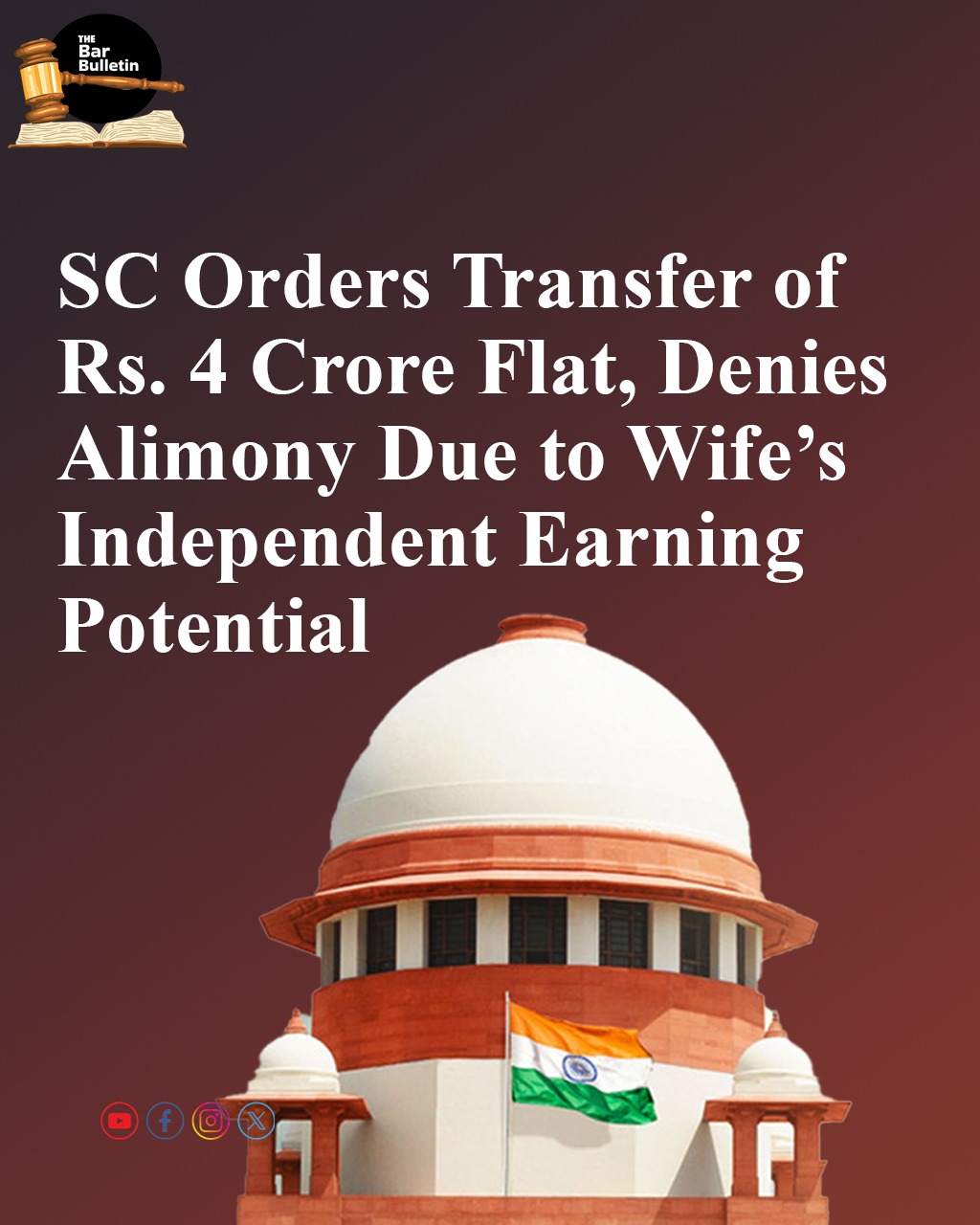The Supreme Court allowed the criminal appeal filed by the appellant-husband, quashing proceedings under Section 498A and related IPC offences pending before the Metropolitan Magistrate in Mumbai, and exercised powers under Article 142 to dissolve the marriage with the second respondent on grounds of irretrievable breakdown. The judgment also laid down specific directions to effectuate a final property and settlement arrangement, closing all pending litigation between the parties.
The case arose from the breakdown of the marriage between the appellant-husband and the respondent-wife. Matrimonial disputes, including repeated complaints and cross-litigation over property and support, led to an eight-year legal battle. The respondent-wife had initiated proceedings under Section 498A IPC and the Domestic Violence Act, while the appellant-husband sought divorce in the Family Court at Delhi.
The parties signed a detailed settlement agreement in September 2022, with terms that included transfer of the appellant-husband’s Mumbai apartment to the respondent on clearing outstanding dues, no further mutual litigation, and withdrawal of civil and criminal cases post-decree. Although the first divorce motion was moved jointly, the respondent later withdrew her consent, prompting fresh litigation and leading the appellant-husband to seek quashing of the criminal case in the Bombay High Court, which was refused.
The Bench comprising Chief Justice B.R. Gavai, Justice K. Vinod Chandran, and Justice N.V. Anjaria found that the criminal complaint and charge-sheet were based on routine marital discord and lacked any specific, verifiable allegations or incidents to substantiate Section 498A IPC. Following the law laid down in State of Haryana vs Bhajan Lal[1] , it held that when the FIR’s allegations, even if taken at face value, made out no offence, quashing was warranted.
The bench also agreed with settled principles that a party can withdraw consent from a mutual divorce motion before the final decree, but noted that the overall history reflected a marriage “completely broken down, emotionally dead and beyond salvation.” Relying on its special powers under Article 142 and the precedent of Shilpa Sailesh vs Varun Sreenivasan[2] , the Court found continued litigation futile and invoked equitable powers to resolve all disputes between the parties.
In elaborating its directions, the Supreme Court ordered the appellant-husband to clear all outstanding apartment maintenance dues and then execute a gift deed of the Mumbai property (including parking spaces) in favour of the respondent-wife by 30 August 2025, upon written notice. If the respondent-wife failed to appear for the deed’s registration after due notice, the divorce would become effective regardless; if the appellant-husband failed to comply, the divorce would not take effect.
The Court held that the property transfer constituted sufficient compensation and additional alimony was unjustified, given the respondent-wife’s qualifications and initial employment, as well as the appellant-husband’s diminished earnings and parental obligations.
Appearances:
For the Appellant: S. S. Jauhar, Adv.
For the Respondent-State: Aaditya Aniruddha Pande, Adv.
For the Respondent-Wife: Caveator-in-person
[1] 1992 Supp (1) SCC 335
[2] (2023) 14 SCC 231
![]()

